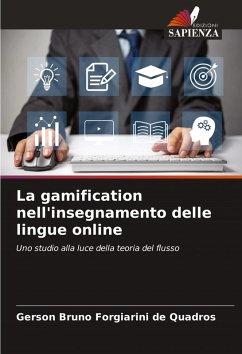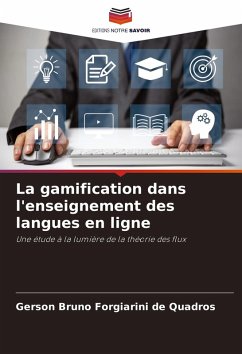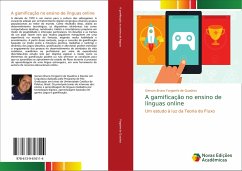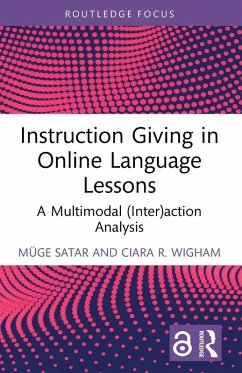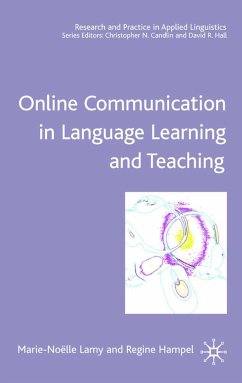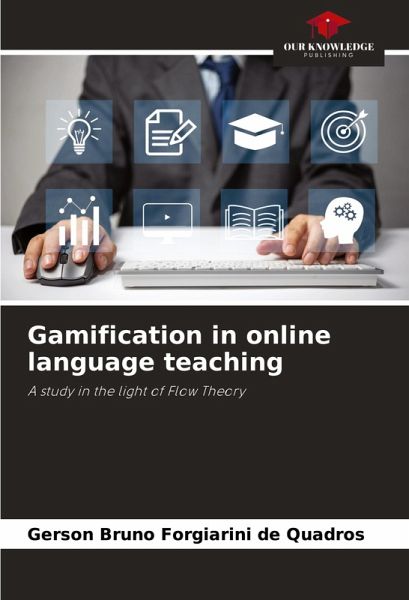
Gamification in online language teaching
A study in the light of Flow Theory
Versandkostenfrei!
Versandfertig in 6-10 Tagen
46,99 €
inkl. MwSt.

PAYBACK Punkte
23 °P sammeln!
The 1970s was a milestone for video game culture. The growing demand for digital entertainment brought together different population groups around the world. As a result, combined with technological development, electronic devices such as desktop computers, notebooks, tablets and smartphones offer a particular mode of gameplay and interaction. The challenges and plots of a game make many players immerse themselves in a fantasy world experience, requiring a great deal of skill and involvement. From this context, the concept of gamification arises, based on how the mechanics (points, medals and ...
The 1970s was a milestone for video game culture. The growing demand for digital entertainment brought together different population groups around the world. As a result, combined with technological development, electronic devices such as desktop computers, notebooks, tablets and smartphones offer a particular mode of gameplay and interaction. The challenges and plots of a game make many players immerse themselves in a fantasy world experience, requiring a great deal of skill and involvement. From this context, the concept of gamification arises, based on how the mechanics (points, medals and ranking) and dynamics of games (challenges, rewards and altruism) can stimulate people's engagement in the development of everyday, academic or professional activities through fun experiences. This study aims to explain how the elements of gamification may or may not offer the conditions for learners to approach the state of Flow during the process of learning a foreign language, in an online educational resource authoring tool.






